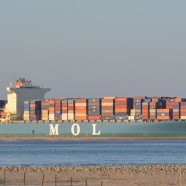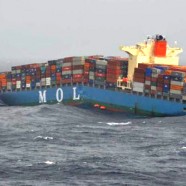Australia v. Japan
Information note n°1
Whales at the International Court of Justice
Today, Australia is voicing out the cry of the whales by defending them against so-called Japanese scientific whaling. Over the next 3 weeks, public hearings in the case concerning ‘Whaling in the Antarctic’ (Australia v. Japan: New Zealand intervening) will be heard in The Hague at the International Court of Justice. The judgment is expected to be delivered within 4 to 8 months. Australia is hoping that a decision be taken within the next four months, before the next whaling season in the Southern Ocean.
A positive decision from Mitsui Osk Lines
MOL Comfort disaster (follow up)
The fore part of MOL Comfort is approaching the Indian coast. If she continues on her trajectory, she could ground south of Mumbai by the end of the week. The fore part of the wreck travels a hundred kilometers a day. The aft part moves more slowly – about 75 km / day – but in the same direction. Towing operations have not begun.
On June 20, Robin des Bois asked all involved parties, Mitsui Osk Line (MOL), the IMO, the European Union, the countries bordering the Arabian Sea and France, to immobilize the sister-ships of the MOL Comfort to identify the causes of the currently unexplained accident.
The Baguette Effect
MOL Comfort disaster
Subject : MOL Competence, shipwreck in the Bay of the Seine or in the Bay of Biscay?
This container ship is dangerous. Built at Nagasaki in 2008, she is one of the sister ships of the MOL Comfort that was fractured in two parts on June 17 in the Arabian Sea for unknown reasons.
MOL Comfort disaster. Letter sent to the concerning parties
Subject : MOL Comfort disaster – June 17th 2013
Addresses :
The General Secretary of the International Maritime Organization
Those responsible for the delegations of the International Maritime Organization in Iran, Yémen, the Sultanate of Oman, the United Arab Emirates, Pakistan, India, Japan, Egypt, and the Bahamas (MOL Comfort flag)
The President of the Mitsui OSK Lines Company
The Commissioner of Transports of the European Union
The Commissioner of the Environment of the European Union
The Prime Minister of Japan
The Minister of Transportation of France
The Achilles Heel of Global Commerce
Mol Comfort disaster
A 316 meter long container ship broke in two after some hours of undulation in the Arabian Sea. The MOL Comfort was transporting the equivalent of 7,040 standard sized containers. The fate of the front and rear sections, and the number of containers that fell into the ocean, are uncertain. The Arabian Sea is one of the world’s busiest shipping routes; it connects the Indian Ocean and the Mediterranean Sea by the Suez Canal.
The MOL Comfort in the process of snapping in two on June 17, 2013
Photo IANS – Indo-Asian News Service











